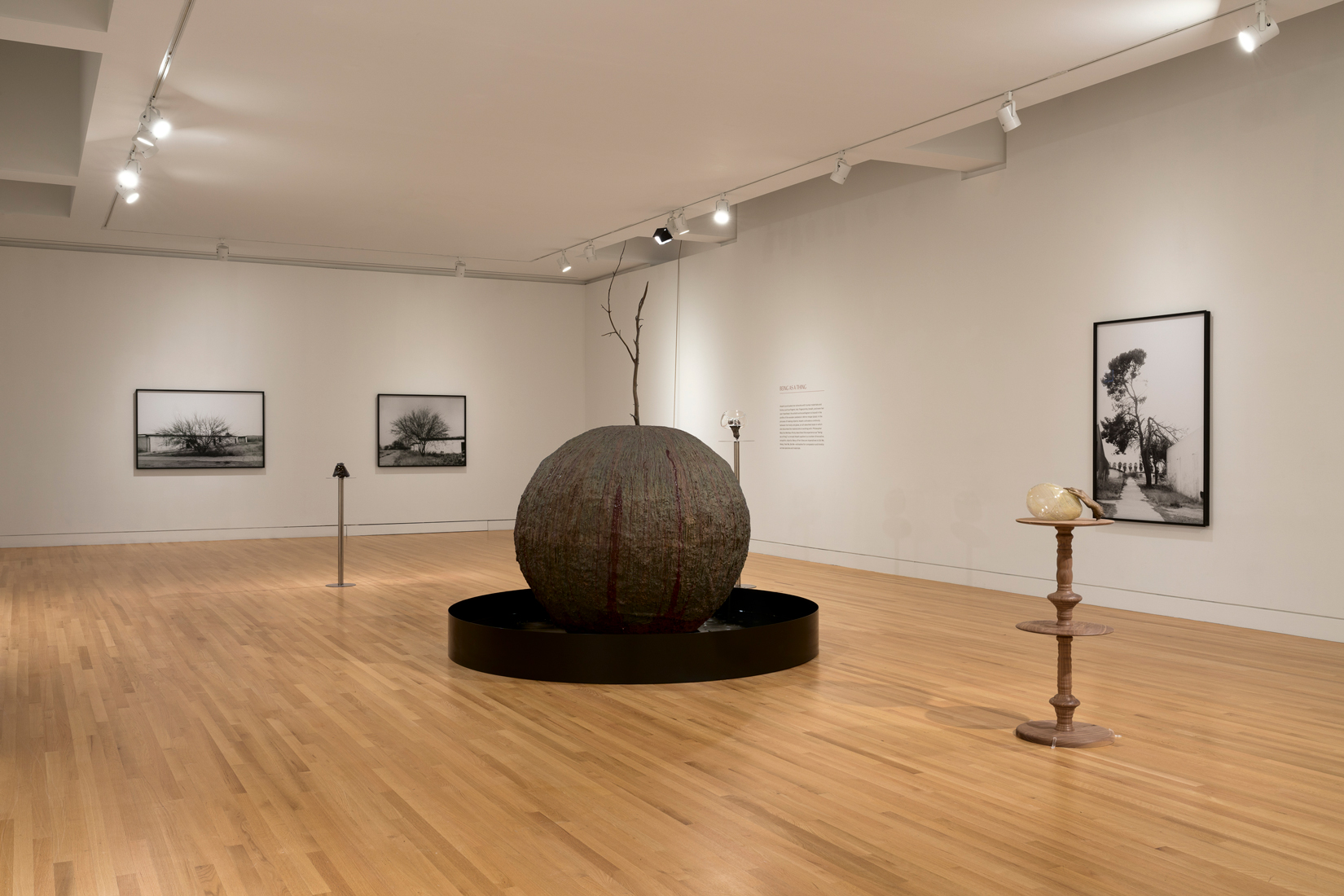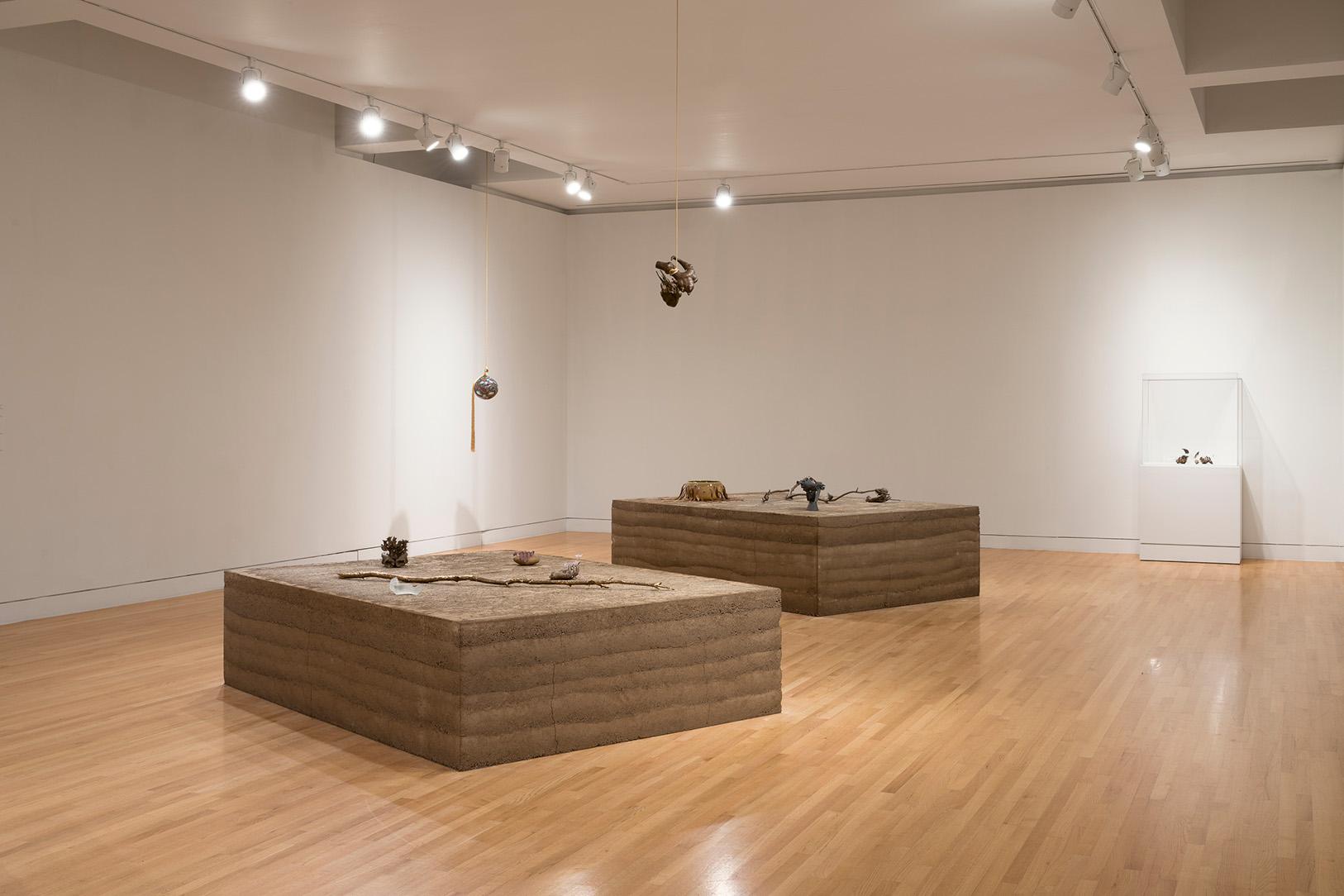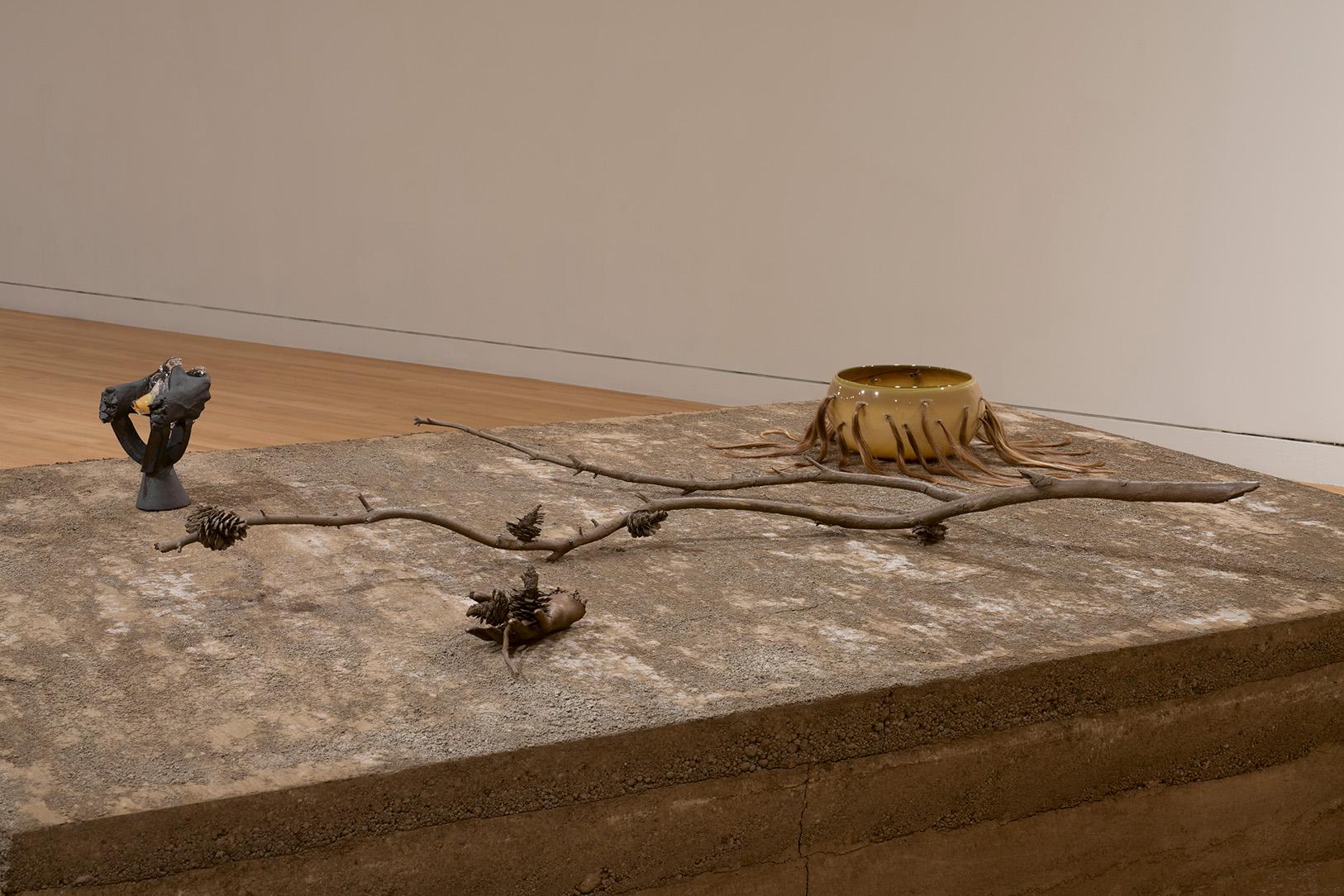Marking the end of Kelly Akashi: Formations and the tenth anniversary of poetry project Moved by Words, the museum welcomed a group of local writers on August 26 for a special reading. Organized by Skyler Reed, live readings were delivered by Zaji Cox, Stacy D. Flood, and Eric M. Acosta. They were joined virtually by Maryam Imam Gabriel, Prashant Kakad, and Michael Copperman. All participants delivered pieces that were inspired by themes found in Kelly Akashi: Formations, from family history and background, understanding identity, resilience, and more. The authors visited the exhibition before the reading and shared two works in response: something existing, and something new inspired by their experience. The new pieces were written in the span of an afternoon after visiting the galleries. The results highlighted the powerful way that interdisciplinary arts can inspire and generate new works and ideas.
The following pieces are selected works shared by the three authors who joined us in person.

Installation view of Kelly Akashi: Formations, Frye Art Museum, Seattle, June 17–September 3, 2023. Photo: Jueqian Fang
A New Almost-Home
by Zaji Cox
The fir and cedar trees over Palmblad Road are towers under which a mother and two daughters drive to the house whose weight is rooted in the ground. Gravel shuffles under car tires and the doors click and creak open to a world of cool, moist air. The trio emerges to marvel under a gray sky so unlike the clear, hot desert air they left behind. The home, owned by the mother’s father, stands waiting.
Through the months that flow into years, the mother and daughters make a home of the weathered hundred-and-ten year-old house that shelters mice and spiders among the two acres of property that are not theirs. Over time, objects accumulate in rooms to make the house feel like it belongs to the three. College textbooks, family pictures, and framed artwork brought by the mother lean on downstairs shelves. In the mother’s bedroom, picture books for the younger daughter lie on one side of the bed and long, text-heavy books for the mother lie on the other. The older daughter’s room holds incense, CDs, magazine photos, and historical fiction novels. The younger daughter’s room is decorated with toys and a rainbow of clothing in the nook of a closet; books soon start to pile on one another. Her wolf-bird Transformer toy eventually finds its spot in the plastic-toy container under the bed. Its legs don’t fold in the way they should, but she sort of likes that this makes it unlike any other.
As the rain of autumn becomes the rain of winter, the mother and older daughter keep the house warm with chopped firewood and the downstairs heater that sometimes works. Summer finally arrives to bring enough blackberries, blueberries, grapes, apples, and plums for months. Hands scrape past thorns and reach above tall branches to pick the very best fruits to cook with. The younger daughter helps cut back the invasion of blackberry bushes around the sides of the house, whose vines tap the windows; her small hands curl around hedge clippers and reach as close to the roots as possible. With nimble fingers, she helps mend the broken downstairs window with plastic and tape.
Some nights the three listen to the wind howl, the house creak, or the rain and wet tree branches thrum against the house, and continue to adjust to the new nature. They huddle closer in the living room, closer to their popcorn and movie and each other, and let the outside music play in the background.
Excerpted from the author’s book Plums for Months
the beautiful selves we always are
We are lying on the earth that supports us, looking up at the heavens that capture our dreams, when she says that viscera doesn’t matter since all of it decays, in the end. “That doesn’t make me feel any better,” I tell her.
“But think about the reverberations from our heartbeats. How they quicken when we touch. Those ripples will carry into eternity, one way or another.”
“I’ll die before you will,” I say. “I can feel the cancer now more than I could before.” She sighs. “I could get hit by a bus tomorrow. You don’t know.”
And although that’s not where the cancer sits, I think about my rib cage, the bones that protect my heart and breath, and how those may be the last parts of me to decay — not the organs themselves, even though what my heart has drawn me towards, and what my breathing captured from the world around me, are the two things that may reach into the future after all.
She sighs again. “Are your eyes still closed?” In the end, I’m not sure.
New work written on August 26 at the Frye Art Museum


after a long days shift
in the rained out street between stops
the open sign's radiant fuchsia sludge
all the passed out buildings are unlight attempting place
the city is lithified trauma
hapless besiegd weres refuse under dormant bank portico
left over fear swaddld in carpet padding
excarnate and bent and held in the subcutaneous space between slabs
the want thrum and whir
their dream breached from the megacity skin
fresh on the grass flop and gasp
alit with mercury spilt acorn bounty spill from a tin bowl under
lantern flower juggernaut fire cracked spruce through to its petticoats
cold from halt
dry across the aisle
dwindle in the bus window slash
seeing my self there with in and out
otiose -- a what was -- the distance in being still this way
the weight when everything opens
behind the door unfold storm compost
the echo identifies himself as heir
the window glass moves his mouth opposite
he wanders aloud rezonein ares taurus fully
the wisdom of a phantom limb
From the collection Motion Flesh